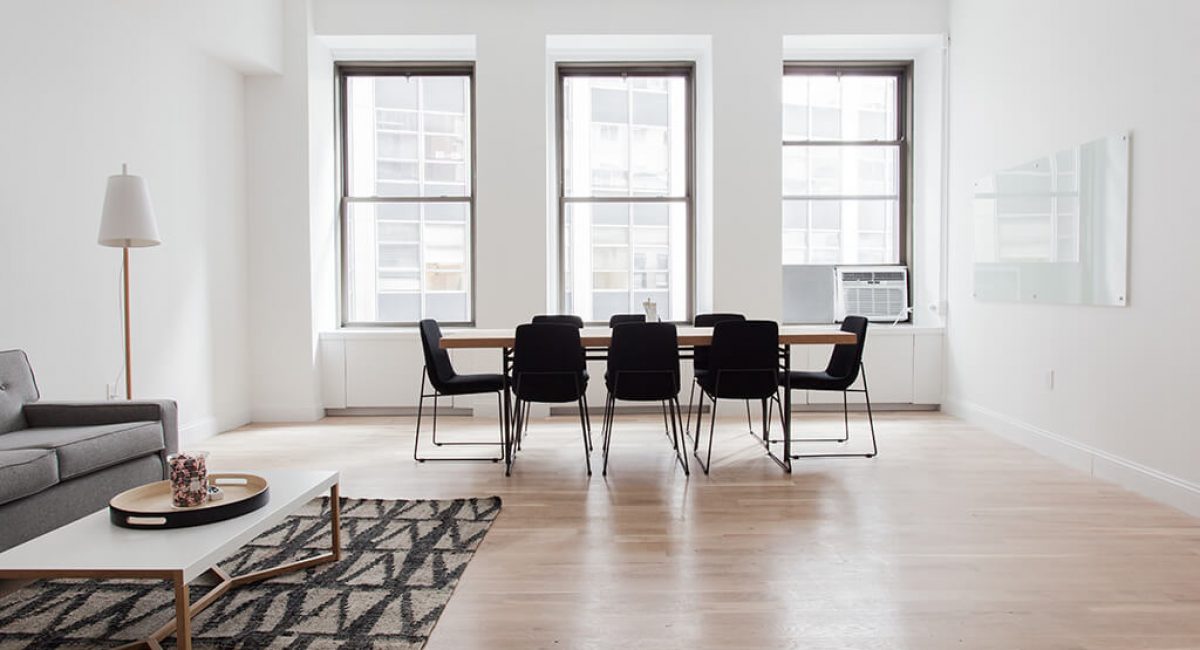
The terms freehold and leasehold relate to the process of purchasing a home, and they determine the extent of your ownership. The difference between freehold and leasehold may be confusing to some, although it’s a term worth knowing by those who plan to own a home in the future. If you find yourself puzzled at questions like ‘What is freehold?’, ‘What does freehold mean?’ and ‘What is freehold property?’, then keep reading.
Freehold
…refers to the outright ownership of both the property you have bought and the land on which it stands. A freeholder would be someone that has a freehold estate in land. In comparison, leasehold is a term used to describe owning property for a fixed term, and not having ownership of the land it stands on. Freehold and leasehold are essentially distinguished by ownership of land or lack thereof – freehold meaning the proprietor owns the land whereas the latter meaning that they only own the property.
If you are the owner of a freehold house or freehold land, you are responsible for the maintenance of them, meaning you would have to take into account these charges when budgeting. However, you do not have to worry about the lease running out because of you own the property and you do not have to deal with a freeholder, also known as the landlord. Any other charges that could be implemented by a landlord, such as ground rent and service charges, are not applicable to you so you do face certain benefits as the owner of a freehold property.
Leasehold
This means you own the property solely and you only do so for the duration of your lease agreement with the freeholder. Once the lease ends, the freeholder receives ownership once again, unless you are able to have the lease extended with a specified charge paid to the freeholder. Nearly all flats in London are leasehold, meaning that while you do own your property in the building, you do not have a stake in the whole building. Some houses are also sold leasehold, which simply means that you own the property but not the land underneath. Before making an offer on a leasehold property, there are certain things that you should consider, such as the number of years left on the lease, how you plan to budget for related costs, and how the length of the lease may affect getting a mortgage. In particular, your ability to get a mortgage is directly impacted by your lease since mortgage lenders like there to be at least 50 years left at the end of a mortgage, which requires the length of the lease to be 75 years in total or more. A potential issue associated with purchasing a leasehold is that a leaseholder would have to obtain permission from the landlord in order to have any major works done to the property, which can delay the task and be a general inconvenience. Legal rights and responsibilities will be most likely enforced by the owner of the land, as well as other restrictions like not being able to own pets or sublet the property, and this can be irritating for the leaseholder.
You may own a leasehold property but wish to buy the freehold on it, which is known as enfranchisement. Despite the complex legal procedures and legal costs involved in this process, it can be invaluable and a great decision for you in the long run – however, it can depend on whether you own a house or a flat and your specific situation, so it is best to contact a lawyer and get professional advice before making any decisions.
Choosing to extend your lease can be very expensive and the law is different based on whether you have a house or a flat. If you own a flat, you have the right to extend your lease by 90 years and you won’t have to pay any more ground rent, as well as being able to renegotiate the terms of your lease. A downside to this decision is that you will have to pay a premium for the extension of the leasehold. However, it appears to be a small price to pay in relation to the benefits that you get from extending the lease. In contrast, you have the right to extend your lease by only 50 years on your house. Despite this, you do not have to buy a lease extension as you would do for a flat, but your ground rent is likely to increase as a result. In both cases, your landlord may either accept, negotiate or reject your offer to extend the lease so you do not have the outright power to demand an extension. Nevertheless, if they do reject your offer on unreasonable grounds, you have the ability to challenge them in court. There may be certain scenarios in which you would benefit more from not extending your lease, such as if you are short on cash and unlikely to be able to remortgage, or if you are not planning to stay in the property for much longer. Also, if you are planning to buy the freehold or live in the property for the rest of your life, which is compatible with the length of the lease, then it would be unwise to pay the extra charge and extend your lease.
Commonhold
Commonhold is a variant of freehold and it is promoted by some anti-leasehold campaigners who wish to replace leasehold with this new form of property ownership. It is supported by the Leasehold Reform Act of 2002. It works by giving each property owner in a block of flats equal rights to a part of the freehold along with an equal responsibility in the maintenance of shared areas. Its main benefit is that there are no time limits or leases for extension, which can be a troublesome issue for some since the value of homes tend to plummet after the lease length drops below 80 years. Commonhold ownership also means that there is no need for third-party management companies or external freehold interests to be involved in the management of the flats. Therefore, property owners are protected from both problems related to short leases and greedy landlords. However, a common issue arising from this is conflicts and disagreements between members of the Commonhold Association and the idea lacks popularity since there have only about 15-20 commonholds completed in the UK.
You may have heard about having a share of freehold, which is similar to commonhold and can be bought from the landlord, as long as half of the leaseholders also agree to buy a share. It allows the freeholder to divide up their responsibility and makes the leaseholders directors of their leasehold company. This gives you more control over your home and costs paid out, as well as giving you the power to extend your lease for up to 999 years.
There have recently been leases applied to newly-built houses, which can be unfair in some cases as they can cause the ground rent to double every ten years, for example, or the landlord could sell the freehold to investment companies without making the leaseholder aware of potential consequences. Clauses such as the former one mentioned are planned to be made illegal under newly proposed legislation by the government, as well as outlawing most sales of leasehold houses as it can be unreasonable for buyers.
Freehold, leasehold and commonhold are three differing options that share some qualities, and it may take the advice of a professional to determine the best one for you. If you do not wish to deal with the upkeep and repairs in the communal areas in and around your property, insurance of the building, and issues with noisy neighbours, then a leasehold property may be better for you. On the other hand, if you have a difficult relationship with the freeholder, wish to have more freedom over your actions with your property or feel like you have been paying an unreasonable amount for service charges and ground rent, then a freehold property may be the one for you. Taking all aspects into consideration when deciding what kind of property to purchase can make all the difference for you in the future, and this blogpost aims to have educated you thoroughly on all of your available options.
If you would like to know more, call us today on 020 3058 3365 or email at our enquiries page



16 Prescot Street,
London, E1 8AZ
Ackroyd Legal is a trading style/name of Ackroyd Legal (London) LLP , which is authorised and regulated by the Solicitors Regulation Authority, SRA No. 554585 and is a LLP registered in England & Wales, Company No. OC360125; VAT no. 445717436;
David Ebert LLP is a separate entity from Ackroyd Legal (London), LLP and are authorised and regulated by the Solicitors Regulation Authority, SRA no. 558176.